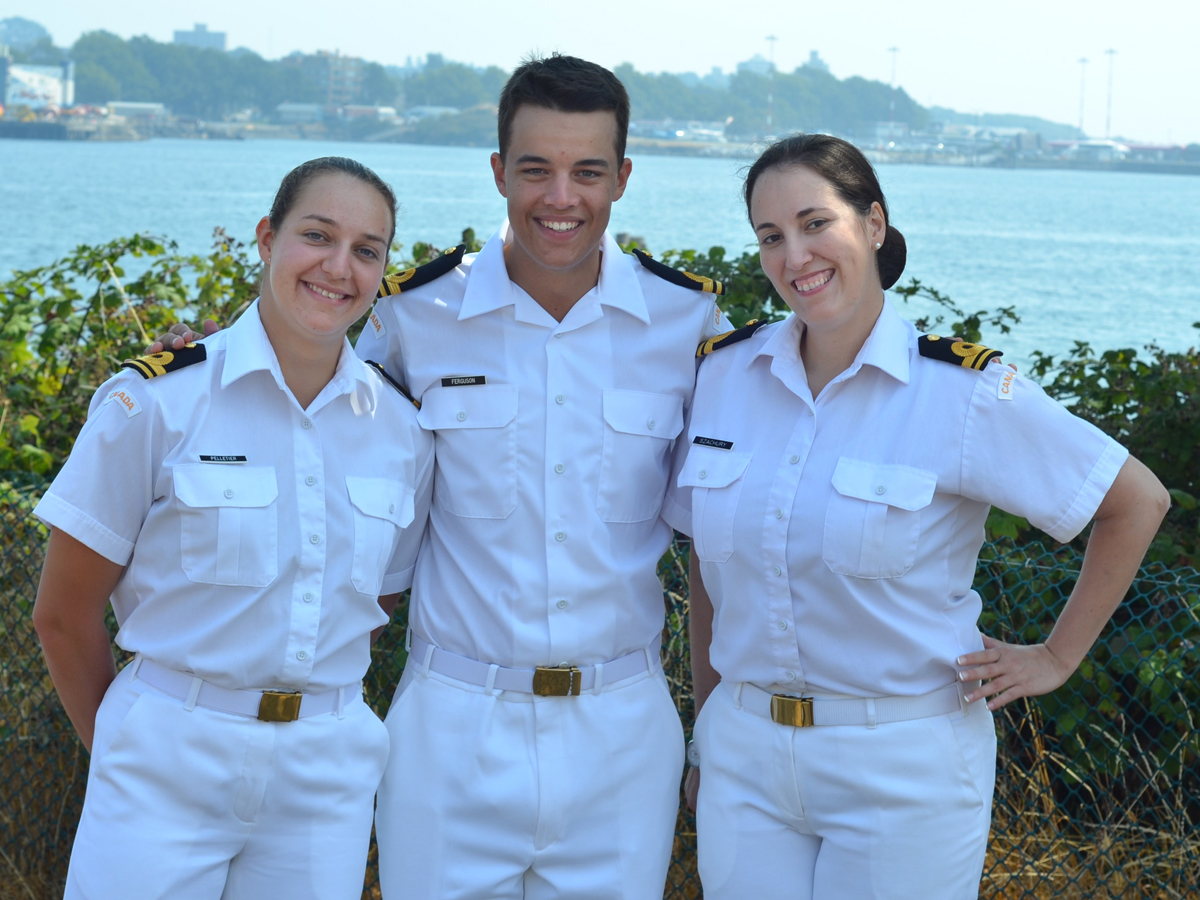The road to naval warfare officer, three-tiered training
By Lookout on Sep 24, 2018 with Comments 1

Left to right: SLt Pelletier, SLt Ferguson and SLt Szachury are all smiles after graduating their naval warfare officer course.
A/SLt Jesse Grigor, Contributor ~
For the third consecutive summer, reservists from across Canada have taken time away from their studies and professional lives to become Naval Warfare Officers at Venture in Work Point.
There are three phases of training and each summer students complete one phase – each more difficult and demanding than the previous. All told, Naval Warfare Officers training requires 10 months from instruction to complete the entire curriculum.
During the first phase, Naval Warfare Officers II, students learn about sea survival, seamanship, damage control and an introduction to life aboard ship.
The second phase, Naval Warfare Officers III, requires that students learn core skills to be the Officer of the Watch on ship, including ship handling, navigation, marine engineering and manoeuvres.
The final phase of training, Naval Warfare Officers IV, teaches students both routine and warfare operations, emergencies, pilotage navigation and divisional administration.
“The experience has been really fulfilling, but bitter sweet because some of us have been together since basic training and now it’s over,” says SLt Szachury, elementary school teacher in Regina, Saskatchewan.
SLt Ferguson, 22, joined when he was 18, and lauds his choice to become an Naval Warfare Officer while going to school full-time at UBC.
“What 18 year old gets taught to drive warships? It’s insane. My other friends all have boring jobs.”
Similarly, SLt Pelletier confessed, “I would have paid to have this opportunity, now I’m getting paid to do it.”
Like many trades, becoming a Naval Warfare Officer has many challenges. After reflecting on the past three summers of training, SLt Ferguson admits the toughest part of the training was not quitting.
“There were so many moments during my training that I thought this is where my navy career ends. During training you learn more about yourself than anything else.”
SLt Szachury agrees saying, “You are constantly proving to yourself you can overcome the next challenge. There are always doubts along the way.”
Becoming a reservist offers two fantastic benefits for students: It provides students with a full-time job during the summer, and if students have difficulty finding employment after they graduate from school, they can easily find employment with the Canadian Armed Forces.
SLt Pelletier said she feels the reserves are a fantastic choice for students.
“It’s great for students. I have one more school semester left, but as soon as I’m finished I want to sign a contract with my reserve unit.”
Similarly, SLt Szachury said she hopes to consolidate her training as soon as she can get a contract with her unit.
She also highly endorses being a reservist Naval Warfare Officer.
“A career as a NWO allows you to choose your own adventure. You get to be as involved as you want to be. It’s the best of both the civilian and military worlds.”
The attitude of these three graduates strongly reflects the passion this year’s graduates have towards becoming a Naval Warfare Officer reservist and their eagerness to join the fleet.
Though this year’s summer courses are completed, next summer will witness the return of many reservists back to Venture to complete the next phase of training and successfully join the fleet.
Filed Under: Top Stories
About the Author:






Really like the program. 21 center program